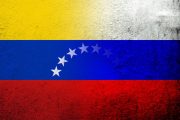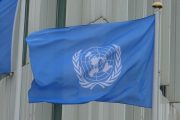
SINGAPORE — A senior leader of the Kuomintang (KMT), Taiwan’s main opposition party, is visiting China this week to meet its top Taiwan policymaker, the party announced, in the wake of persistent military and political hostilities between the two sides.
China has claimed Taiwan for its own, to be reunified with the mainland, by force if necessary, and for the past three years the communist regime in Beijing has increased pressure on Taiwan with actions such as conducting regular military drills near the island.
The KMT’s deputy chairman, Andrew Hsia, left for China on Feb. 8 to meet Song Tao, the newly appointed head of China’s Taiwan Affairs Office, in a rare high-level interaction between top politicians from Taiwan and China, amid current frosty relations.
Hsia, a former Taiwanese diplomat and one-time head of Taiwan’s Mainland Affairs Council, and his delegation will “conduct exchanges and dialogue on the basis of equality and dignity,” the KMT said, and will “reflect Taiwan’s latest public concerns about the security of the Taiwan Strait and expectations for regional peace and stability,” the party elaborated.
The Mainland Affairs Council said the KMT informed it of the trip, stating that Taiwanese politicians who visit China should “reflect” the Taiwan people’s insistence on maintaining democracy and peace.
The KMT has historically preferred warm ties with China, but vehemently dismisses being pro-Beijing. China’s Taiwan Affairs Office lauded Hsia’s visit.
He visited China last August — a trip slammed by Taiwan’s government — shortly after Beijing conducted war games near Taiwan to display unhappiness at a visit to Taipei by then U.S. House Speaker Nancy Pelosi.
China has refused to speak with Taiwan President Tsai Ing-wen’s administration since she assumed power in 2016, believing she is a separatist, and has ignored frequent calls from Tsai for talks to resume.
The KMT has justified its outreach to China, saying it is vital to keep lines of communication open. The party’s statement on Hsia’s visit said that in light of the present “stalemate” in relations across the Taiwan Strait, “it is natural not to sit idly by.”
“After returning to Taiwan, the visiting delegation will truthfully reflect what it has seen and heard to Taiwan society and government departments to facilitate the formulation and promotion of follow-up policies,” the KMT added.
Meanwhile, Taiwan will accelerate the development of drones for military use, considering the lessons of the conflict in Ukraine and the threat posed by China, said the island’s Defense Ministry on Feb. 7. Unmanned aircraft have played a key role on both sides since the start of the Russia-Ukraine conflict in February 2022, and Ukraine’s defense minister said he sees drones as the future of modern warfare.
Taiwan has reiterated that it is keeping tabs on the situation in Ukraine to see if it could apply lessons, including how Ukraine has fended off a numerically superior force in case of a Chinese invasion, and Taiwan’s Defense Ministry spokesman Sun Li-fang admitted to reporters that the island is speeding up the development and manufacturing of drones.
“Responding to the present enemy threat and using the general experience of drones in the Ukraine-Russia war, in order to construct an asymmetric combat power for our country’s drones, the Defense Ministry is speeding up research and development and production of various drones,” Sun said.
The military-owned National Chung-Shan Institute of Science and Technology is spearheading the development drive and will involve civilian companies in its efforts, he added.
Chi Li-ping, director of the institute’s Aeronautical Systems Research Division, disclosed information about the drones in development for the military, including for reconnaissance purposes. “Our country’s drones have already reached international standards when it comes to their type, abilities and relevant technology,” he said.
In a report to Parliament last year, the institute unveiled plans for the missiles and drones it has in development, while the Defense Ministry has unearthed plans to begin producing unspecified “attack drones.”
Notably, Taiwan has already had to tackle Chinese drones, which have hovered around Taiwan-controlled islands off the Chinese coast.
The Straits Times reported that Chinese authoritarian leader Xi Jinping seemed to be reconsidering his hard-line stance on Taiwan in the year before the island stages a presidential election, because Xi’s government’s favored negotiating partner, Taiwan’s KMT, has a shot at winning the vote.
Beijing has indicated that it hopes to reboot imports from over 60 Taiwanese food companies that were among exporters it banned last year. Observers contended that such a move seems to be a shift away from an unofficial punitive stance China has adopted to display unhappiness with Taiwan’s Tsai for activities such as cultivating ties with the United States.
“Now as Taiwan’s presidential campaign is about to start, it’s a good time for Beijing to lessen its sanctions against Taiwan because if it doesn’t, sanctions are going to be a major liability for Beijing-friendly politicians in Taiwan,” said Wen-ti Sung, a specialist on Taiwanese politics and cross-strait relations at Australian National University. “That’s what we’re seeing now.”
In another harbinger of China’s seemingly softer tone on Taiwan, the People’s Liberation Army (PLA) command in the east — the military unit that would lead an invasion — published a video over the weekend to celebrate a Chinese holiday with the people of Taiwan.
The video warmly depicted how the PLA protected the well-being of the Chinese people and the good life of “the family” on both sides of the Taiwan Strait.
However, the video contained conflicting images of fireworks and relatives hugging with fighter jets and short-range ballistic missiles, and observers said these images were reminders of the weapons China fired over the island after Pelosi’s Taiwan visit last year.
The presidential election in Taiwan is set for January 2024, with Tsai ineligible to run again because of term limits. Her stepping down paves the way for new candidates such as Vice-President William Lai, a top challenger to be the Democratic Progressive Party’s (DPP) candidate who once portrayed himself as a “political worker for Taiwanese independence.”
Such rhetoric riled Beijing, whose officials often slammed the DPP for its “collusion” with the U.S., Taiwan’s main military supporter.
New Taipei Mayor Hou Yu-ih and Foxconn Technology Group founder Terry Gou appear to be the KMT’s current front-runners, based on a poll in January by TVBS, a major Taiwanese broadcaster.
The KMT’s robust showing in local elections last November raised hopes that it could win its first presidential election victory in ten years, and if China adopts a softer tone towards Taiwan, the KMT’s efforts to win voters over could be enhanced.
Over 78 percent of the public felt China held an antagonistic attitude towards Taiwan’s government, according to a survey that the Mainland Affairs Council in Taipei released in October, and some 61 percent of respondents said Beijing was unfriendly to the Taiwanese people.
Despite the KMT having fought and lost to Mao Zedong’s communists in a civil war in the first half of the 20th century, the party is Beijing’s favored negotiating partner in Taiwan. This is because Beijing and the KMT both regard Taiwan as a part of China.
Under Tsai’s KMT predecessor, former president Ma Ying-jeou, Taipei and Beijing loosened decades-old restrictions on tourism and investment.
“Engaging in dialogue with the KMT allows Beijing to say that cross-strait dialogue is taking place even as it eschews dialogue with the Tsai administration,” said Amanda Hsiao, senior analyst at International Crisis Group, a Brussels-based policy research group. “It also allows the KMT to present itself to Taiwanese voters as the party capable of delivering dialogue — and therefore a more stable relationship — with Beijing, which appeals to segments of the Taiwanese population.”
Although it would be premature to conclude what the outcome of such a shift in China’s approach to Taiwan might be, it seems to align with its more conciliatory tone toward the United States and its allies since Xi met President Joe Biden in Indonesia last November.
While U.S. Secretary of State Antony Blinken had been poised to visit Beijing this week, he postponed those plans due to a Chinese balloon the United States claimed was spying on the country. However, a potential visit by Pelosi’s Republican successor, Kevin McCarthy, may reveal in the coming months the degree to which China has tweaked its approach.




